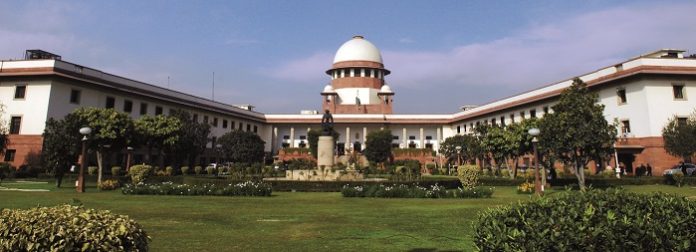The right to criticize the government is an inalienable right in any democracy and it is the common man’s prerogative how he uses it. People may have varying opinions on matters of national importance and they may express these in their chosen ways. The government should respect that and not try to stifle it.
On 5 September 2016, a Supreme Court bench, comprising Justices Dipak Misra and UU Lalit, observed that criticizing the government is not an offence under the prevalent sedition or defamation laws. What’s unfortunate is that the apex court had to step in to clarify this in an otherwise open and shut case—the right to dissent. Largely upheld as a basic right in any democratic system, the threat to democracy becomes real whenever the government of the day tries to meddle with it. Like any other controversy, this issue has two sides which calls for careful balancing by the government.
Now the question is: What triggered this debate and whether this is the first-of-its-kind of dissent in the history of independent and democratic India. The answer to the second question is, of course, no! The government of the day has faced similar criticism from different quarters right from the day India gained independence. It crossed the red line during the 1975 emergency, when it curtailed a range of individual liberties that also included the right to criticize the government. If the present controversy is seen in the backdrop of that period, it is surely not as scary, or critical, as it was back then. The apex court, which stood up for the people in 1975, again cautioned the government this time.
In 1988, the government under Prime Minister Rajiv Gandhi had to withdraw an antidefamation bill it had introduced in parliament, not under pressure from the opposition but due to an unrelenting defiance from the press, including those sections that were ‘pro-establishment’. This was a major defeat for a government that boasted the largest majority ever in the history of independent India. The press literally stonewalled the government’s efforts for a discussion since it was evident that the bill aimed at stifling freedom of expression. The press in India had dug its heels for a showdown, which even a government with three-fourths majority had no stomach for.
India has moved on from the times when it was still struggling to secure its feet among the nations of the world. The word ‘democracy’ meant little, if not nothing, internationally under the shadow of the Cold War. Today’s India is seen as a classy example of a colossal democracy that has managed to blossom in a highly stressed environment. Consequently, the people of the country are well within their rights to expect more freedom to express their views that are often at variance from those of the government. The Supreme Court has been categorical about individuals’ rights to criticize the government; however, interpreting this observation of the apex court as the right to preach violent disintegration of the country on a public platform does not appear to be what the court has observed.
The Indian press continues to be at the forefront when it comes to safeguarding freedom of speech, the right to dissent and the right to criticize the government, with editors leading from the front. In a recent editorial, The Hindu sharply criticized the Jayalalitha government for charging folk singer, Kovan, with sedition after his song called for the closure of state-run liquor shops. In yet another instance, TOI questioned Gujarat government’s decision to use this draconian law to corner the leader of the Patel agitation in the state, Hardik Patel.
The apex court’s observation in the present case cautions the government from going on an overdrive to rein in certain controversial characters who openly preach violent disintegration of the country from public platforms. Intriguingly enough, on one side of the debate, such controversial preaching is dismissed as “silly” while on the other side, the government is expected to respond to such controversial characters by clamping sedition charges against them. The government of the day always has recourse to remedies other than curbing individual rights and the freedom of expression. Democracy can be raucous and no government is guaranteed respect except through its right actions. It would make sense for the government and the state to be righteous in upholding the laws of the land before they demand respectful silence from dissenters.

















